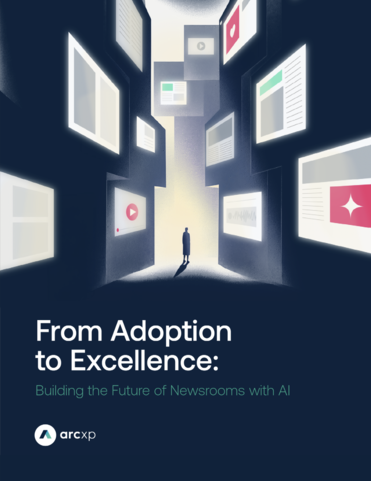Securing the digital future with Sovereign Cloud

Martin Hosken at Broadcom argues that true innovation requires robust data safeguarding as well as advanced technologies if organisations are to navigate the complexities of a connected world
Fuelled by decades of hyperconnectivity and big data flows, the global pursuit of AI innovation has driven advancements in cloud computing. These developments have not only reshaped industries but also redefined how organisations operate, compete, and grow in a world that thrives on real-time insights and automation, leaving them to confront the challenge of maintaining their competitive edge.
Amid these changes, boardroom agendas are undergoing a profound shift – transitioning from a focus on data accessibility to data confidentiality and sovereignty. This development mirrors the growing recognition of data as a strategic asset with the potential to shape national infrastructure and global competitiveness.
Data is now being viewed as a dual-purpose resource: a driver of digital progress and a cornerstone of national security.
Striking a balance between achieving unrestricted data flows and meeting the imperatives of national sovereignty has become a priority. True innovation now requires not only access to advanced technologies but also responsible regulations and robust data safeguarding to navigate the complexities of a connected world.
The dawn of the Sovereign Cloud age
Sovereign cloud is transforming cloud infrastructure and services by offering a novel approach to data governance. As organisations look to benefit from global connectivity while protecting domestic interests in the digital realm, sovereign cloud frameworks establish a new standard.
These frameworks foster digital advancements and collaboration while ensuring the security of local data, safeguarding proprietary software, and maintaining compliance with local, national, and European regulations.
Driven by the need for regulatory alignment, this model is already making a significant impact across Europe. It not only empowers regions to leverage their collective data resources for a competitive edge in the global economy but also enables nations to assert greater control over their digital futures.
Cloud Service Providers (CSPs) across the region are pivotal to the success of sovereign cloud – and have the opportunity to be at the forefront of innovation. But, getting sovereign cloud ‘right’ can be challenging – especially when trying to straddle evolving residency and sovereignty requirements, tightening budgets, siloed infrastructures, and skills challenges.
So how do CSPs set themselves up for success? Ultimately, there are three key considerations to ensure their sovereign clouds live up to their promise:
Charting the path for successful integration
Achieving data sovereignty depends on nurturing security, privacy, and interoperability. But as GigaOm’s Jon Collins pointed out at the European Sovereign Cloud Day event in Brussels last year, the foundation for successful sovereign cloud adoption hinges on understanding the key organisational drivers of sovereignty – including societal, regulatory, and architectural factors.
Defining what sovereign ‘success’ means for your data, operations, and infrastructure is crucial. This clarity not only provides a framework for guiding customers on the core principles of sovereignty but also demonstrates how these principles align with their specific needs.
Clearing a path for seamless integration begins with a thorough evaluation of current practices, pinpointing areas for improvement, and crafting a strategy to achieve and sustain data sovereignty. This step is foundational, as it enables organisations to safeguard their data, utilise it effectively to drive business goals, adhere to regulatory requirements, and fulfil broader societal expectations.
Keep the door open for collaborative opportunities
To retain that strategic advantage, adopting best practices in sovereignty is crucial, as it establishes standards that go beyond basic regulatory compliance. Ensuring alignment with cloud principles requires proactive assessment and comparison of frameworks.
While meeting minimum requirements may seem enough, it doesn’t necessarily guarantee long-term success or a sustainable future. Lasting effectiveness is achieved through the adoption of comprehensive, well-maintained standards, with all parties committed to the same principles. This approach should extend to the sovereign cloud domain, where CSPs work towards shared frameworks and standards that foster a unified European data space for innovation.
Similarly, don’t be afraid to engage with local and regional partners to build truly robust sovereign frameworks for data sharing. Interoperability and portability will be crucial to our shared success, so it’s in all our interests to work together to test, iterate and elevate our frameworks to new heights.
The most successful initiatives are those designed to develop and implement sovereign cloud solutions at national and European levels, for instance, showing the marked difference between what European Union and non-native frameworks can deliver, which are crucial to fostering game-changing innovation.
Adjusting with agility
Establishing a solid foundation is essential but we have to recognise that the principles of sovereign cloud are not static. As regulatory and business landscapes evolve, these principles must adopt accordingly. Staying abreast of regulatory changes and maintaining the flexibility to adjust strategies ensures that your roadmap remain agile and responsive to future developments.
That said, don’t miss the opportunity to emphasise your strategic differentiation. Sovereign cloud has evolved beyond a mere transactional discussion – it is not about building strategic partnerships and committing to long-term investments that drive continuous excellence. What truly sets you apart from the competition is not the consistency of the underlying technology stack and software, but your ability to deliver services through your own sovereign cloud.
Harness the potential
Sovereign cloud presents a transformative opportunity, laying the groundwork for sustainable digital growth. Looking to the future, its importance will only grow, serving as an indispensable bridge between technological advancements and national priorities.
Success in this space will require a forward-looking vision, dedication to standardisation and collaboration, and agility to adapt to shifting regulations and market dynamics.
Adopting sovereign cloud is a key milestone in building a more secure, transparent, and innovative digital future for businesses, governments, and individuals. For CSPs, the path to shaping this future is only just starting.
Martin Hosken is Field CTO, Cloud Providers at Broadcom
Main image courtesy of iStockPhoto.com and baona

Business Reporter Team
You may also like
Related Articles
Most Viewed
Winston House, 3rd Floor, Units 306-309, 2-4 Dollis Park, London, N3 1HF
23-29 Hendon Lane, London, N3 1RT
020 8349 4363
© 2025, Lyonsdown Limited. Business Reporter® is a registered trademark of Lyonsdown Ltd. VAT registration number: 830519543





